
Chlamydia Treatment Timeline Calculator
Your Treatment Timeline
See when you need to get tested, start treatment, and when you can resume sexual activity.
Your Treatment Timeline
Start Antibiotics
Treatment Duration
Abstinence Period
Follow-Up Test
Safe to Resume Sex
Important Notes
Important: Always complete the full course of antibiotics even if symptoms improve. Partner testing and treatment are crucial to prevent reinfection.
Reinfection risk: Chlamydia can be transmitted before treatment starts and through reinfection if partners aren't treated. Use condoms or abstain until treatment is complete.
Follow-up: Schedule a test 3-6 weeks after treatment to confirm the infection is cleared.
Facing a chlamydia diagnosis can feel overwhelming, but an honest conversation with your Partner is the first step toward healing together.
Understanding Chlamydia
Chlamydia is a common bacterial sexually transmitted infection (STI) caused by Chlamydia trachomatis. It often shows up as Asymptomatic, meaning many people don’t know they’re infected until a test catches it. When symptoms do appear, they can include burning during urination, unusual discharge, or pelvic pain.
Because it spreads easily through unprotected sex, early detection through a PCR test or urine sample is crucial. The infection is easily cured with a short course of Antibiotics, typically azithromycin or doxycycline.
Why Open Talk Matters
Holding back can prolong the infection, increase the risk of complications like pelvic inflammatory disease, and damage trust. A transparent dialogue shows respect, reduces anxiety, and lets both partners make informed choices about treatment, testing, and future prevention.
Preparing for the Conversation
- Gather factual information: know the symptoms, treatment length, and how it’s transmitted.
- Decide whether you’ll share a written note, a phone call, or an in‑person talk.
- Choose a calm environment where you won’t be interrupted.
Having a trusted resource-like a pamphlet from a Gynecologist or a reputable health website-can help answer questions on the spot.
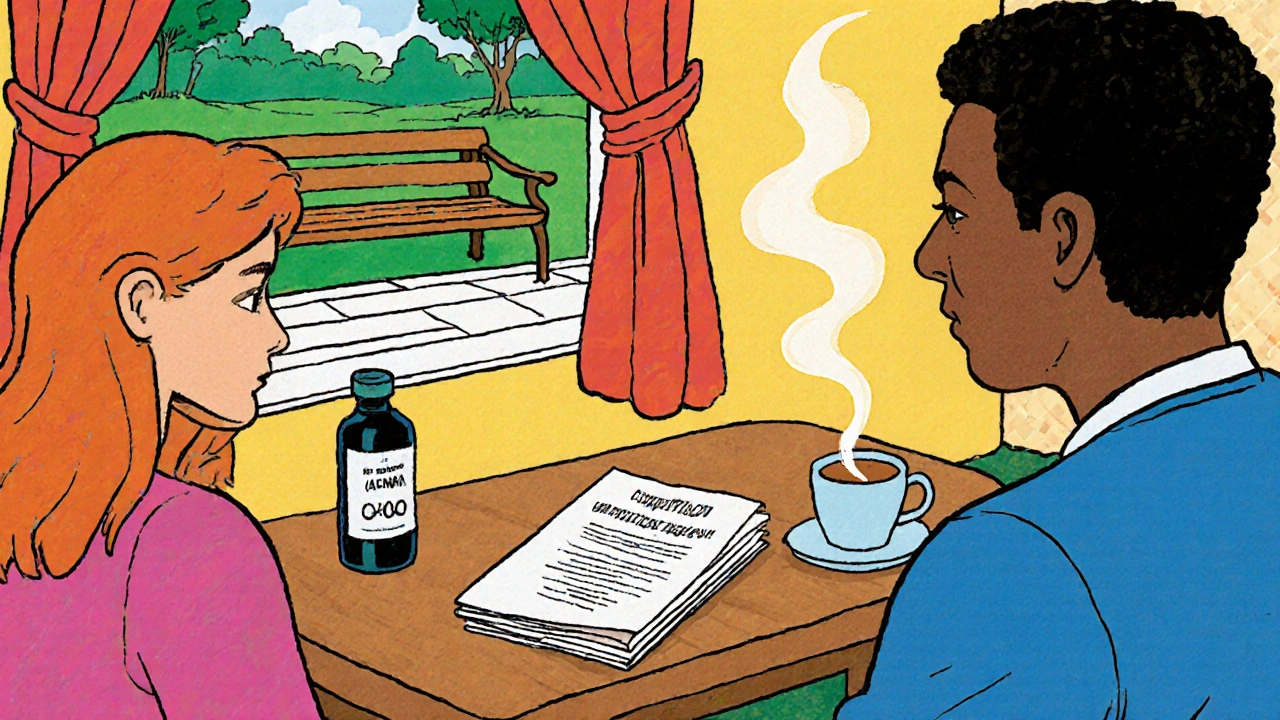
Choosing the Right Time and Place
- Pick a moment when you’re both relaxed, not in the middle of a hectic day.
- Ensure privacy: a quiet bedroom, a park bench, or a private Zoom call.
- Avoid bringing it up during an argument or when either of you is under the influence of alcohol.
How to Phrase Your Words
Use “I” statements to keep the focus on your experience rather than blame.
- “I recently got tested and found out I have Chlamydia. I want us to talk about what that means for both of us.”
- “I care about our health and want us to get treated together.”
Offer reassurance that the infection is treatable and that you’ll support each other through the medication schedule.
Handling Emotions and Reactions
Expect a range of feelings-surprise, guilt, anger, or fear. Give your partner space to process. If they become defensive, stay calm and repeat the key points: it’s a medical issue, not a moral failing.
Validate their emotions: “I understand this is upsetting. Let’s figure out the next steps together.”
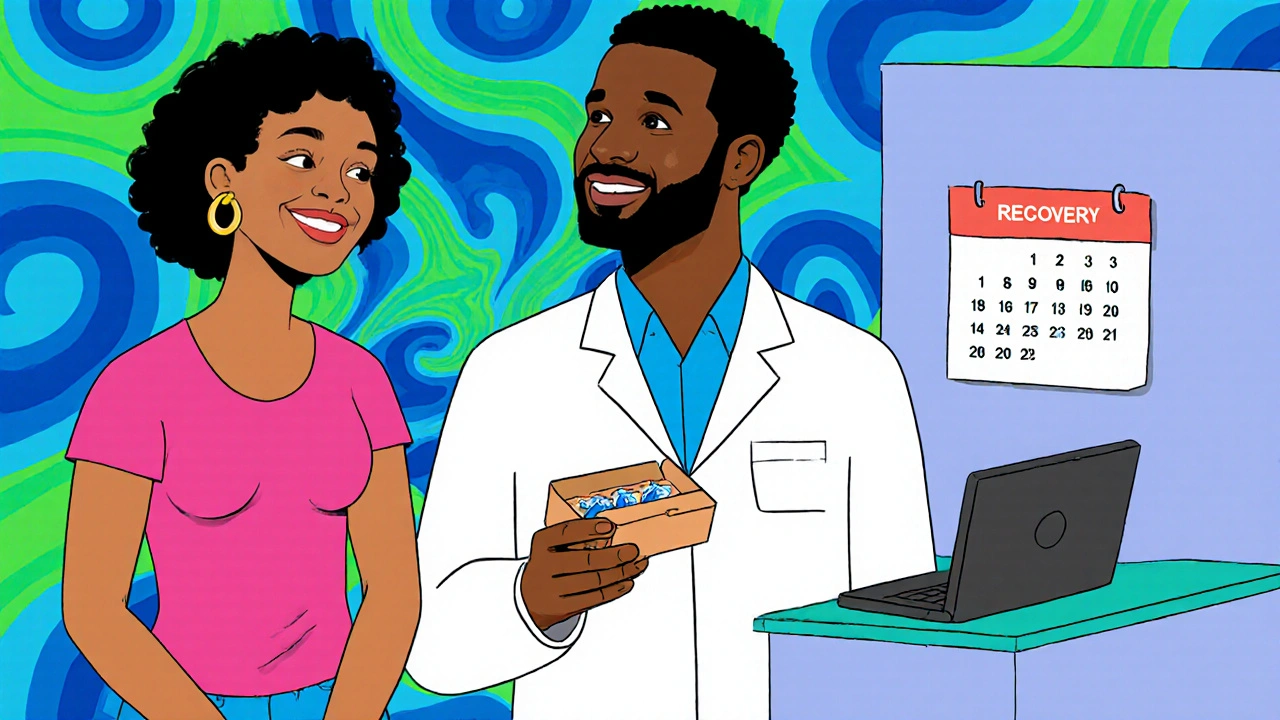
Next Steps After the Talk
- Both partners get tested: even if one tests negative, re‑testing after treatment is advisable.
- Start the prescribed Antibiotics regimen immediately.
- Abstain from sex or use condoms consistently until treatment is complete and follow‑up tests are clear.
- Schedule a follow‑up appointment with a healthcare provider to confirm cure.
Using a Condom during the recovery period reduces the chance of reinfection.
Common Mistakes to Avoid
- Delaying the conversation until symptoms appear.
- Using accusatory language (“You must have done this”).
- Assuming the infection is a one‑time event-retesting is key.
- Skipping professional medical advice in favor of internet forums.
Resources and Support
| Aspect | Details |
|---|---|
| Transmission | Unprotected vaginal, anal, or oral sex |
| Incubation period | 1‑3 weeks |
| Typical treatment | Azithromycin 1 g single dose OR Doxycycline 100 mg twice daily for 7 days |
| Re‑infection risk | High if sexual partners are not treated; use condoms |
For personalized advice, consider seeing a Gynecologist or a certified sexual health clinic. National hotlines, like the CDC’s 24‑hour STD helpline, provide confidential guidance.
Can I get chlamydia from a single encounter?
Yes. Even one act of unprotected vaginal, anal, or oral sex can transmit chlamydia because the bacteria live in mucous membranes.
Do I need to tell all past partners?
Ethically, informing anyone you’ve had sex with in the past 60 days is recommended, as they may need testing and treatment.
Will antibiotics cure chlamydia completely?
When taken exactly as prescribed, antibiotics clear the infection in over 95% of cases. A follow‑up test confirms eradication.
Can chlamydia cause infertility?
If left untreated, chlamydia can lead to pelvic inflammatory disease, which may damage fallopian tubes and increase infertility risk.
Is it safe to have sex during treatment?
Abstain from intercourse or use condoms until both partners have completed antibiotics and a negative follow‑up test.


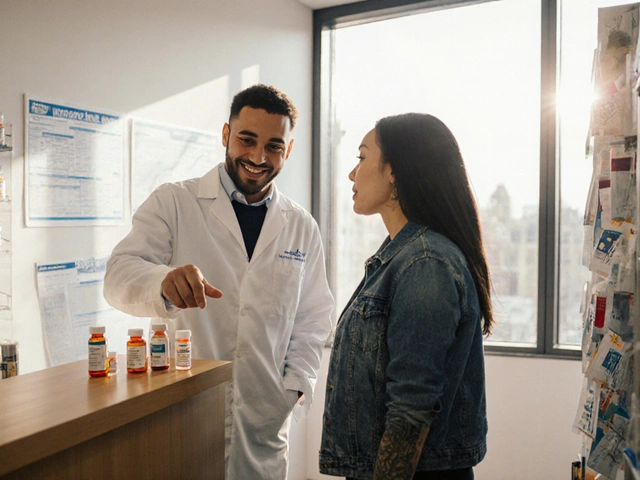

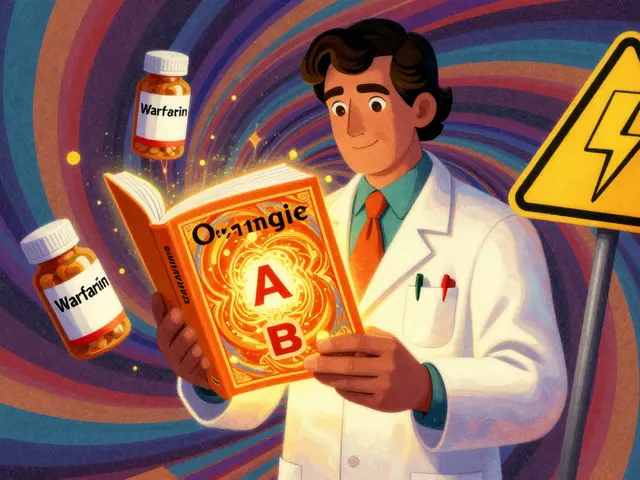
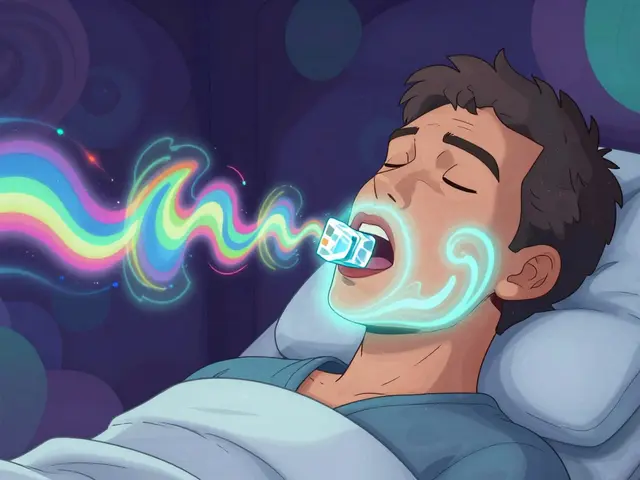
Sarah Hanson
October 18, 2025 AT 21:29Clear commnunication fosters trust and ensures both partners understand treatment steps.
Adhering to the outlined plan reduces anxiety and promotes recovery.
Nhasala Joshi
October 27, 2025 AT 15:41🚨 The hidden network of health agencies is silently pushing us to accept STIs as normal, but we must stay vigilant! 😱 The symptoms may be subtle, yet the repercussions are massive, affecting future fertility and societal health.
We need to demand transparent testing protocols and challenge the pharmaceutical monopoly on antibiotics.
Only by sharing the truth can we protect our loved ones.
Stay alert and question every medical recommendation.
Poornima Ganesan
November 5, 2025 AT 10:53When you receive a diagnosis like chlamydia, the first instinct is often panic, but it’s important to remember that the infection is both common and treatable.
Start by grounding yourself in the facts: the bacterium is spread through unprotected sex and often shows no symptoms, which is why routine testing is essential.
Gather the information you need-understand the typical treatment regimen of azithromycin or doxycycline, its duration, and potential side effects.
Choosing the right moment to talk to your partner can dramatically affect how the conversation unfolds; aim for a calm, private setting where interruptions are unlikely.
Use “I” statements to keep the focus on your experience rather than assigning blame, for example, “I recently got tested and found out I have chlamydia; I want us to discuss what that means for both of us.”
Offering reassurance that the infection is curable helps to alleviate fear and creates a collaborative atmosphere.
Expect a range of emotional reactions-surprise, guilt, anger, or even denial-and give your partner space to process those feelings without rushing them.
If defensiveness arises, stay calm, repeat the key points, and emphasize that this is a medical issue, not a moral failing.
Validate their emotions: “I understand this is upsetting; let’s figure out the next steps together.”
Both partners should get tested, even if one is asymptomatic, because reinfection is a common risk when only one person receives treatment.
Once the prescription is in hand, start the antibiotics immediately and avoid sexual activity or use condoms consistently until the treatment course is finished and follow‑up tests confirm clearance.
Scheduling a follow‑up appointment with a healthcare provider is crucial; a post‑treatment test typically occurs three weeks after completing medication.
Remember that using condoms during the recovery period reduces the chance of reinfection and protects future sexual health.
Avoid common pitfalls: don’t delay the conversation waiting for symptoms, don’t use accusatory language, and don’t rely solely on internet forums for medical advice.
Instead, consult a qualified gynecologist or sexual health clinic for personalized guidance.
Emma Williams
November 14, 2025 AT 06:05Talking openly early saves a lot of stress later
Albert Fernàndez Chacón
November 23, 2025 AT 01:17I appreciate the thorough breakdown, especially the reminder to schedule follow‑up testing.
Drew Waggoner
December 1, 2025 AT 20:29Keeping it real, communication is key.
Mike Hamilton
December 10, 2025 AT 15:41Theres a deeper lesson in every health scare, it's about risk and reasponibility.
We learn to balance personal freedom with community safety.
Choosing honesty over shame protects both bodies and relationships.
Matthew Miller
December 19, 2025 AT 10:53Let's crush this together, team!
Stay motivated and keep each other accountable.
Liberty Moneybomb
December 28, 2025 AT 06:05They've been hiding the cure for decades, feeding us lies while pocketing profits 😡.
We must expose the truth and demand real solutions now.
Alex Lineses
January 6, 2026 AT 01:17Exactly, clear communication meets both emotional and medical needs, making the treatment journey smoother for everyone involved.
kendra mukhia
January 14, 2026 AT 20:29Honestly, many people ignore the basics and end up making the situation worse.
If you skip the follow‑up test, you’re playing with fire.
Take the advice seriously and act responsibly.